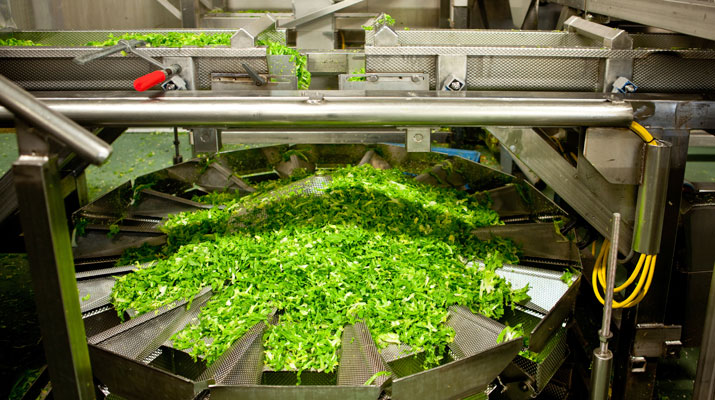
File Photo.
Written by Edward Smith
It was the Great Depression when Congress passed a law guaranteeing payment to farmers and distributors for fresh produce sold across the country.
Produce was purchased on credit, By the time lettuce reached the East Coast, buyers could dictate terms of the transaction.
“Shippers were at the mercy of these unscrupulous receivers of produce,” said Bart Botta, director of Orange County-based law firm Fennemore Craig’s Agribusiness Law Practice Group.
Called PACA laws — Perishable Agricultural Commodities Act — the 90-year-old legislation keeps everyone honest, Botta said. The law goes so far that even if a produce buyer were to go bankrupt, growers and distributors get paid before the IRS in many cases.
But now, following a case from the 11th Circuit Court in Florida, the law may be reviewed by the Supreme Court for the first time, providing clarity to growers, shippers, retailers and attorneys on the billions of dollars that change hands yearly in the fresh produce industry.
Brent Erenwert is the CEO of Houston-based Brothers Produce, distributing food throughout Texas, Arkansas, Louisiana and Oklahoma. He does business with a lot of restaurants and food service.
“You think about the failure rate on those places, it’s about 50%,” Erenwert said of restaurants. “So, what happens is someone can constantly open and close, open and close, open and close and just keep kicking the can down the road on debt. This prevents that.”
Anyone dealing with fresh produce has protections granted to them by U.S. law. Growers have automatic PACA protections and distributors can get PACA licenses. Buyers set aside money to pay back their vendors in a quasi-trust.
“Even in a bankruptcy, we’re going to get something, we’re going to be right there with the IRS, even before the IRS,” Erenwert said.
Bankruptcy courts typically try to get PACA payments out of the way first.
Growers can use PACA against Erenwert just as much as he can against his buyers. If a grower doesn’t feel they are getting adequate compensation for their product, they can force him to open his books.
“With our margins being so skinny, we can’t afford to take hits like this all the time,” Erenwert said.
A brand-new PACA license is not as highly regarded as one more established, said John Bailey, attorney with Salinas-based Alternative Dispute Resolution, APC. Bailey represents growers in many PACA cases. Without a license, it’s very hard to find people to do business with, he said. His clients use PACA hundreds of times a year, and PACA language is on almost every invoice.
And it’s not just repayment of debts that PACA ensures. Violations of the law follow people around. If a company wants to hire someone with a PACA violation, they must post a bond, said Erenwert. Industry papers regularly publish when PACA violators get hired. On Feb. 9, Produce Blue Book published that Los Angeles Produce Distributors LLC posted two $250,000 bonds to employ two people who had committed “repeated and flagrant violations” of PACA law.
At issue is how far the repayment of debt goes. In August 2022, a Florida appeals court ruled that when Central Market of Florida went bankrupt, it was allowed to discharge more than $260,000 in debt to Spring Valley Produce, according to the Produce Blue Book Services, a credit rating agency in the product industry. Spring Valley took the case to the 11th U.S. Circuit Court of Appeals, which ruled that while PACA imposes some “trust-like” duties, it didn’t meet all the requirements for exemptions in bankruptcy laws.
No PACA case has ever reached the Supreme Court, according to Produce Blue Book, but this case has a chance.
The Supreme Court will hold a Justice’s Conference Friday, so attorneys may know the following week whether they will take up the case, said Botta, who reached out to attorneys with Spring Valley Produce.
The question is Congress’ original intent in passing the law. It used to be that all debts were protected by PACA, but appellate courts have found exceptions for certain kinds of debts, said Botta. In 1997, Botta wrote a legal analysis about how much stronger the law had become following several court decisions.
But in the past 10 years, it’s grown more vague, he added.
Bailey sees growers as the true intended beneficiary of the law, but other users down the line have less clarity. Risk of non-payment is built into pricing models for distributors, said Bailey.
“Sure, the big distributors probably can take the bullet and lose that money, but if they’re at risk of losing that money, they can give the grower less return,” said Bailey.
Both Botta and Bailey say a ruling from the Supreme Court would give clarity to PACA users about how far the law goes.
“It would make it easier to predict what would happen and provide some clarity,” Botta said.








